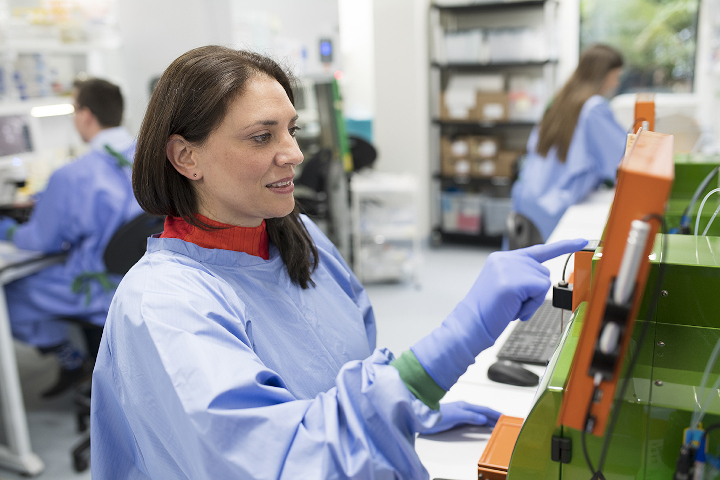“Super charging” the immune system to fight cancer and beyond
The immune system has evolved a series of complex, interconnected cellular and molecular pathways to defend not only against infections but also abnormal cellular conditions such as cancer and endometriosis.
The two most important killer cells are cytotoxic T cells which recognise target antigen peptides complexed to membrane MHC molecules and Natural Killer (NK) cells which recognise a variety of ‘stress-induced’ markers that are increased on cancer cells. Macrophages, which serve as “vacuum cleaners” ridding the body of dead and dying cells; they can also play a major role in engaging T cells to attack cancer cells.
Allogeneic CAR-immune cells (“off-the-shelf”)
This technology involves induced pluripotent stem cell (iPSC) derived NK cells (and, potentially, other types of immune cells). iPSCs have unlimited capacity for self-renewal.
Cartherics has developed proprietary technology for inducing iNK cells from iPSCs. These are very potent cytotoxic cells, able to kill a variety of cancer cell types.
Cartherics has further improved their function by genetically engineering the iPSCs so that the iNK cells express a cancer specific chimeric antigen receptor (CAR) and are resistant to certain mechanisms that reduce immune function.
The company is currently developing large-scale manufacture of these CAR-iNK cells for application in human trials and is expanding its pipeline to include iT cells and iMacrophages.
The Company’s lead product, CTH-401, is an iPSC-derived CAR-NK cell product. It carries a CAR directed against TAG-72, a well-validated tumour target, along with the deletion of two genes associated with immunosuppression.


Autologous CAR-T cells
This technology arms the patient’s own T cells with CARs, which enable them to “seek and destroy” cancer cells.
These autologous CAR-T cells are further enhanced by deleting genes which act as immune hand brakes.
The combination of CAR “knock-in” and immune suppressor gene “knock-out” enables the CAR-T cells to completely eradicate a model of human ovarian cancer in mice.
We have a CTH-004 development partnership with the Peter MacCallum Cancer Centre and have licensed development and commercialisation rights to Shunxi for Greater China. Cartherics retains all development and commercialisation rights for CTH-004 outside Greater China.
Frequently Asked Questions
For further information
Engineered CAR-T cells targeting TAG-72 and CD47 in ovarian cancer
Runzhe Shu, Vera J. Evtimov, Maree V. Hammett, Nhu-Y N. Nguyen, Junli Zhuang, Peter J. Hudson, Maureen C. Howard, Aleta Pupovac, Alan O. Trounson, and Richard L. Boyd
Targeting human ovarian cancer with immune cells derived from the patient or from homozygous HLA haplotype iPS cells
Richard Boyd, Roland Shu, Vera Evtimov, Nicholas Boyd, Nhu-Y Nguyen, Thao Nguyen, Kellie Cartledge, Madeline Cao, Mathew Tiedemann, Junli Zhuang, Maree Hammett, Callum Docherty, Peter Hudson, Maureen Howard, Ian Nisbet, Alan Trounson
Off-the-Shelf iPSC derived CAR-NK immunotherapy for solid tumors
Nicholas Boyd, Mathew Tiedemann, Kellie Cartledge, Madeline Cao, Vera Evtimov, Runzhe Shu, Thao Nguyen, Nhu-Y Nguyen, Ian Nisbet, Richard Boyd and Alan Trounson


